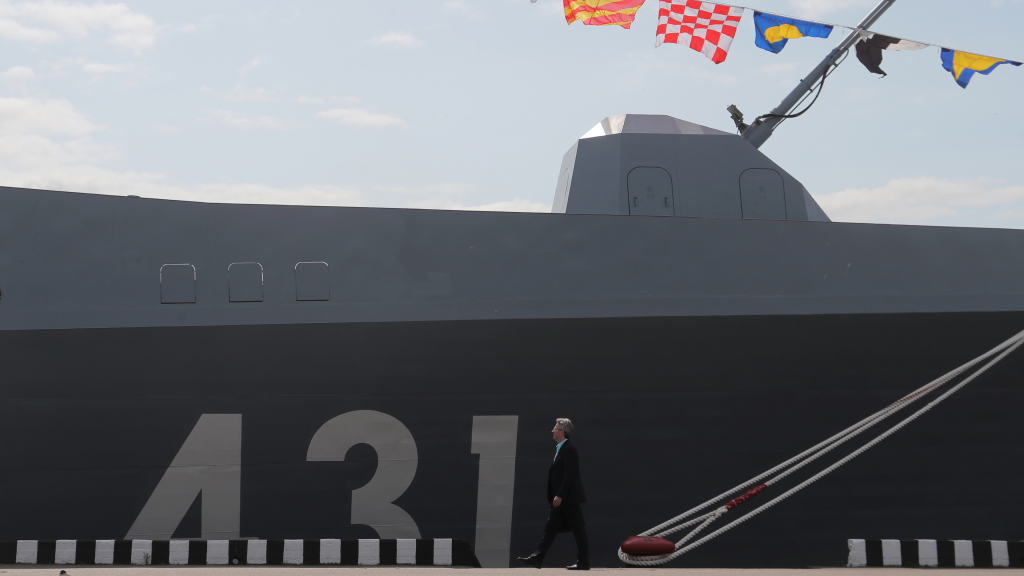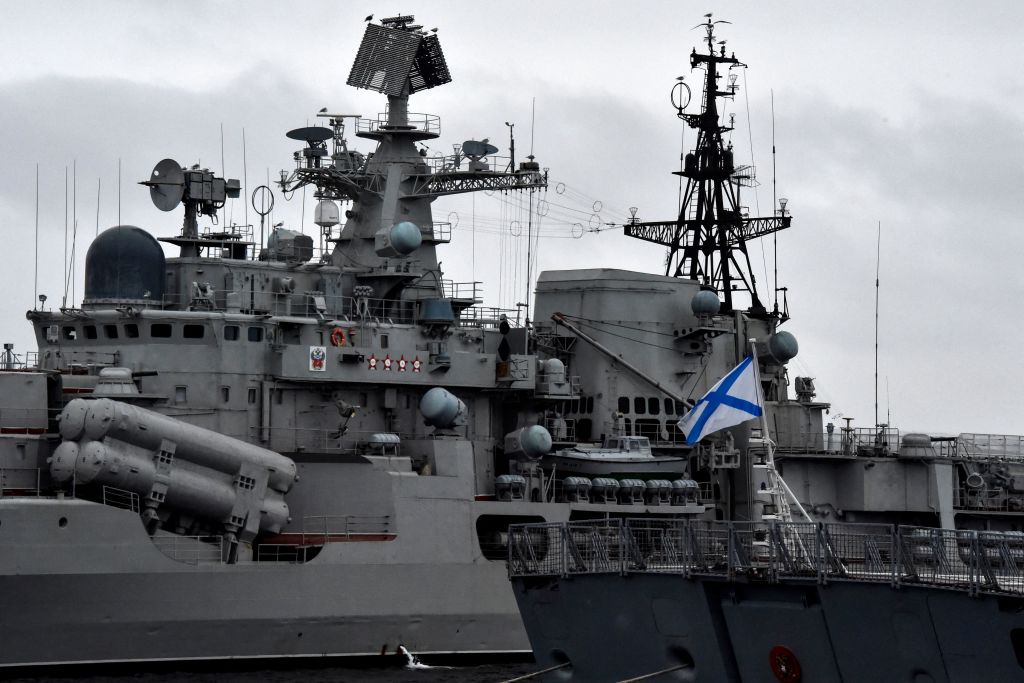Frigate in Barents Sea is manned by sailors with battle experience from Ukraine

Servicemen on board the Admiral Kasatonov successfully applied their war experiences during a recent exercise in the Barents Sea, the Northern Fleet reports.
The Russian warship this week conducted a series of drills along the coast of the Kola Peninsula. Among the training scenarios was the elimination of enemy amphibious landing troops in the area. Enemy vessels were spotted by radars, whereupon they were destroyed from 14 km distance by the frigate’s А-192М artillery system, Russian Navy representatives say.
The crew onboard the Admiral Kasatonov reportedly also applied its Palash naval air defence gun-missile system to repel an enemy air attack. There was also tactical training on protection against nuclear, chemical and biological attacks.
According to the Northern Fleet, several of the sailors on the frigate have fought in Ukraine.
“Several of the servicemen onboard the Admiral Kasatonov have taken part in the special military operation. They have experience from modern warfare that was applied during the training.”
“The training on protection of Russia’s maritime interests in the Arctic demonstrated a high level of professionalism among the crew members and readiness to execute all assigned tasks,” the Navy informs.

The Admiral Kasatonov is part of Russia’s new fleet of frigates. It was commissioned in 2020 and is based in the Kola Peninsula along with sister vessels Admiral Gorshkov and Admiral Golovko. As Russia launched its full-scale war against Ukraine in February 2022, the Admiral Kasatonov spent months in the Mediterranean Sea as part of a special naval task force.
The task force operated from Tartus, the Syrian port that is now under control of the new rulers in Damascus.
It is a well-known fact that a big number of soldiers from the Northern Fleet is fighting on occupied Ukrainian territory. The 200th Motorised Rifle Brigade in Pechenga and the 61st Naval Infantry Brigade in Sputnik have sent several hundred men to war.
Also servicemen from other Northern Fleet units have been in Ukraine. Among them are sailors from the submarine forces.
Casualties are mounting. The Barents Observer has compiled a list of more than 540 men from the Kola Peninsula that have been confirmed killed in the war. The list also includes men from navel bases such as Polyarny and Gadzhievo.
Among the sailors killed is Yuri Svedovoy. He reportedly commanded a unit under the forces of the so-called Donetsk Peoples Republic and fought in Mariupol, Volnovakha, Marinka and Avdeevka.
Captain Svedovoy was first of all a sailor and expert on warfare in the Arctic. He used the call sign Polyarnik (Polar Explorer) and was trained at the 269th underwater Spetsnaz unit in Gadzhievo.
Related stories from around the North:
Canada: Experts Arctic early-warning radar project news, want detail on other North promises, CBC News
Finland: Finnish Defence Minister tells party leaders shrinking fighter fleet would be “irresponsible”, Yle News
Greenland: Greenlanders vote in election dominated by Trump’s control pledge, Reuters
Iceland: Iceland’s FM announces defence review, calls revamped security policy ‘urgent’, Eye on the Arctic
Norway: NATO’s Arctic dilemma: Two visions of the Arctic collide as NATO and Russia flex muscles, Eye on the Arctic special report
Russia: Russian gov promises new weapons while approval ratings slide, The Independent Barents Observer
Sweden: U.S. shows strength on the one-year anniversary of Sweden’s accession to NATO, The Independent Barents Observer
United States: U.S. experts call for ‘vigilance’ on Russian military buildup in Arctic, Alaska Public Media



